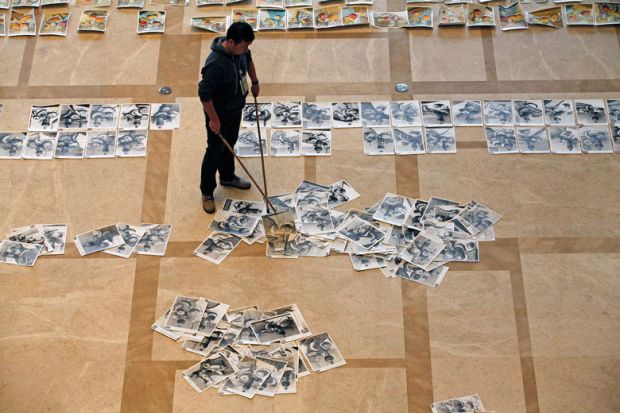China has launched a major crackdown on journals that churn out thousands of poor-quality papers each year, but an academic has argued that countering the root causes of the glut of below par publications should be the priority.
Last month, the publicity department of the Chinese Communist Party’s central committee warned academic periodicals “not to loosen gatekeeping standards for profits”.
Now the China Association for Science and Technology (Cast) has become the first major sector body to respond, releasing a list of 53 journals – covering subjects ranging from clinical pharmacology to urban development – that will face audits.
The titles that have been prioritised for checks include those that publish more than 2,000 papers a year or those that mostly publish articles that are shorter than 5,000 words or three pages. Journals that appear weekly or biweekly have also been targeted.
All other journals managed by Cast and its affiliated organisations have been ordered to conduct a self-assessment of their article-quality review processes, business operations and publishing licence, according to an official notice.
“It is necessary to create a long-term management mechanism to prevent low-quality journals from publishing too many papers,” said Yu Liping, dean of the School of Academic Evaluation and Scientific and Technical Statistics at Zhejiang Gongshang University.
“But it is a band-aid rather than a cure if the root cause remains. The length of a paper is not the problem – it could be high quality even if it is less than 5,000 words.”
China has replaced the US as the country publishing the most research papers annually, but the over-representation of low-quality articles among the Asian superpower’s output remains a significant concern.
Professor Yu said many Chinese academics’ prioritisation of quantity over quality was driven by the country’s professional title system, which determines a scholar’s position within the country’s socio-economic hierarchy.
“For professionals and technical personnel, professional title is a decisive factor of their reputation and income. Organisations now have more power to assess their own talents, but they often prioritise the volume of publication rather than its quality and innovation, due to lack of review ability and administrative interference,” Professor Yu said.
In September, the Ministry of Human Resources and Social Security claimed that a reform of the professional title system, affecting 80 million professionals, had been “completed” after five years. The reform asked organisations to assess academics using a range of factors rather than just their publication output. However, continuing reports tying publication fraud to professional titles indicate that the extent of reform may vary in different areas.
“The fundamental solution is to stick to the reform and improve the way we assess professional titles and rankings,” Professor Yu said.
Register to continue
Why register?
- Registration is free and only takes a moment
- Once registered, you can read 3 articles a month
- Sign up for our newsletter
Subscribe
Or subscribe for unlimited access to:
- Unlimited access to news, views, insights & reviews
- Digital editions
- Digital access to THE’s university and college rankings analysis
Already registered or a current subscriber? Login




